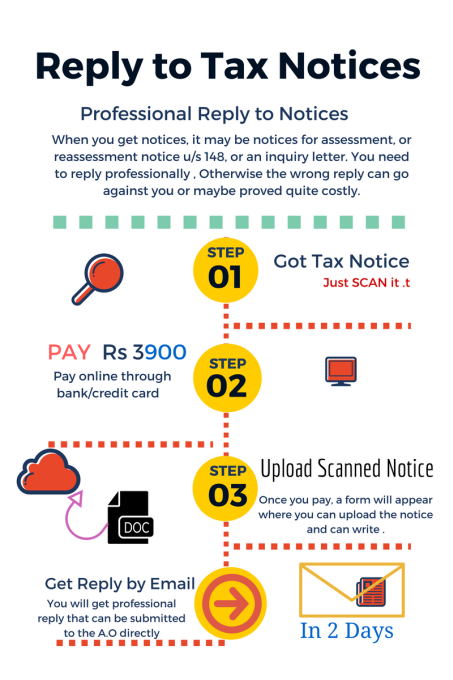What to do if you are summoned by the Assessing Officer in the Income Tax Department for a reassessment?

You may fall into a situation after filing your returns, where you are summoned by the Assessing Officer in the Income Tax Department for a reassessment, if the Assessing Officer finds it necessary while assessment that you may have misled the income tax return assessment. The procedure for reassessment is followed as per it has been stated under Section 147 and the Notice served to the assessee for appearing before the Assessing Officer falls under the conditions laid under Section 148.
Section 147- Understanding the Powers and Duties of Assessing Officer
The Section 147 of the Income Tax Act, lays down the procedure the Assessing Officer must follow while he/she is conducting the reassessment process. The procedure as stated in Section 147 is:
- The existence of a reason/s in part of the Assessing Officer (AO) is mandatory to conduct a reassessment.
- As stated under Section 151 of the Income Tax Act, The AO must obtain sanctions from higher authority in the Income Tax Department as.
- The AO must issue a notice to the assessee as stated under Section 148.
- The assessee has the liberty to demand reasons from the Assessing Officer, as stated under the Section 147 of the Act.
- Following the previous step, the AO shall issue a mandatory notice as per the Section 143(2) of the ACT.
- In response to notice under Section 148, the assessee can request for considering the return filed under Section 139(1) or 139(1)/(4)/(5), instead of filing a fresh return.
- During the reassessment, the assessee can submit all the objections with substantial details.
- The AO is obligated to answer the objections raised by the assessee.
- The assesee is free to file a Writ Petition before High Court and/or appeal before CIT (A).
- The Income Tax Officer can charge a penalty for every addition made during the assessment.
- A penalty cannot be charged, if the assessee makes a bonafide claim without any malafide intention.
Section 148 of Income Tax Act – Under What Cirrcumstances can Assessing Officer Issue Notice
The Assessing Officer must have enough evidence to believe that it has escaped the assessment, any income that is chargeable to tax. Once the AO is confident, he/she can issue a Notice under Section 148 of the Income Tax Act to the assessee, asking him to appear before the AO. Thus, Section 148 describes the provisions of this Notice.
Mehsana District Central Co-op Bank Ltd vs. ACIT (Gujarat High Court)
To understand these sections in deep, you can study the Gujarat High Court ruling in Mehsana District Central Co-op Bank Ltd vs. ACIT.
- The Assessing Officer’s action to deal with the objections raised by the assessee runs contrary to the judgment of the SC case of GKN Driveshafts (India) Ltd. v. ITO and Ors. The permission to reopen an assessment cannot be given because the AO was acting under the compulsion of the audit party.
- Since the income escaped the eyes of the AO while the return was in assessment and was brought to the AO’s attention by the audit party, the reopening of the assessment cannot be permitted. The court said that the AO only holds the power to reassess; only if he/she notices any escaped income in the assessment, no third party’s involvement is legally binding.


 ITAT Amritsar: No Section 269SS Violation for One-Time Cash Payment Before Sub-Registrar
ITAT Amritsar: No Section 269SS Violation for One-Time Cash Payment Before Sub-Registrar  Tax Officials Unleash Digital Dragnet: How New Raid Powers Redefine Privacy, Property Rights in India and likely to Fuel Corruption
Tax Officials Unleash Digital Dragnet: How New Raid Powers Redefine Privacy, Property Rights in India and likely to Fuel Corruption  Income Tax Department Rewards for Reporting Tax Evasion: A Comprehensive Guide
Income Tax Department Rewards for Reporting Tax Evasion: A Comprehensive Guide  Forfeiture of Gratuity by Employer- What are the Remedies for an employee- Can employer be challenged?
Forfeiture of Gratuity by Employer- What are the Remedies for an employee- Can employer be challenged?  Employer can forfeit gratuity of an employee in case of moral turpitude
Employer can forfeit gratuity of an employee in case of moral turpitude  Diving Deeper: The Impact of the New Tax Bill on Dairy and Farming Income
Diving Deeper: The Impact of the New Tax Bill on Dairy and Farming Income